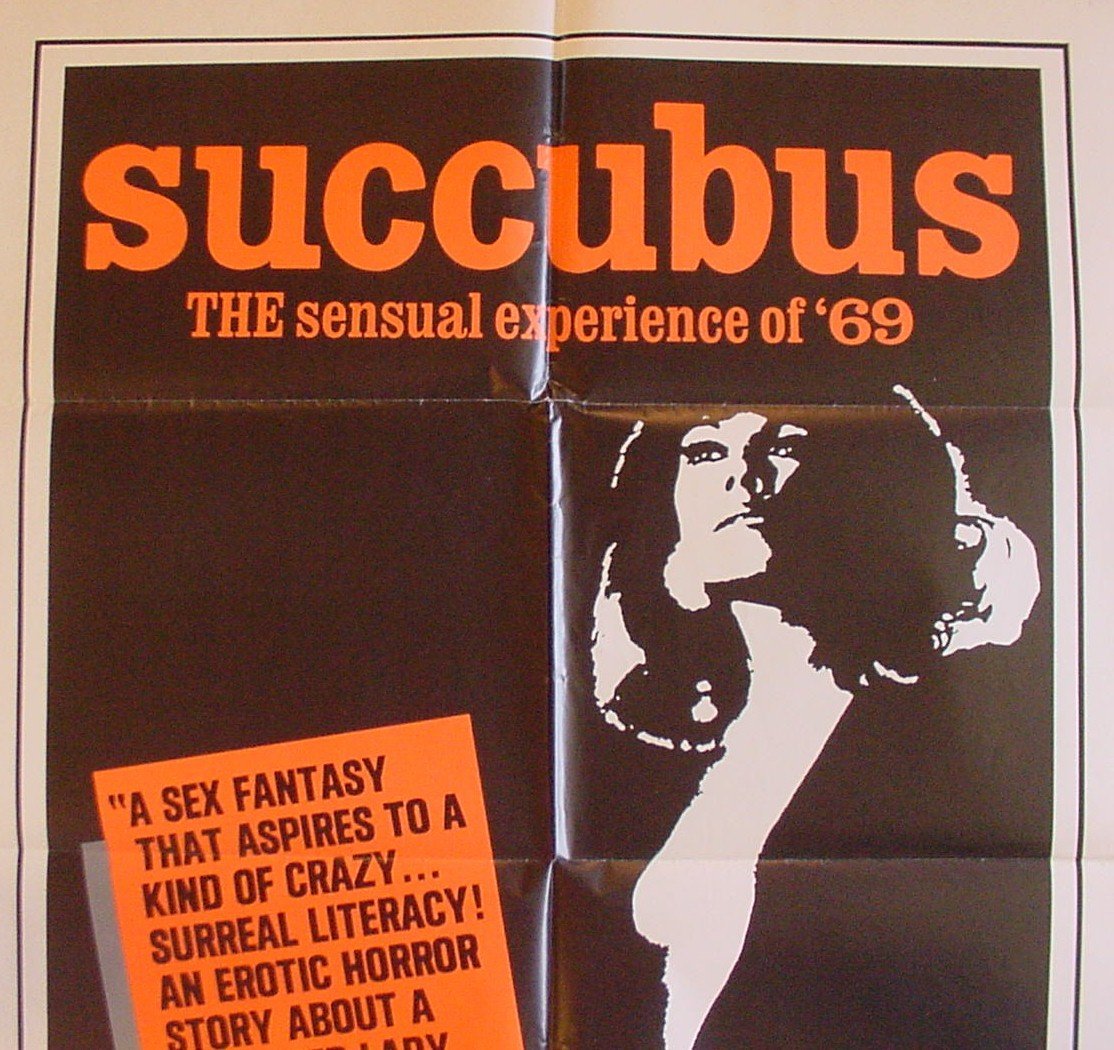Certain genres, subgenres, movements, categories of art have threatened to purify themselves, if not into silence entirely, at least so far out of the artistic mainstream that it becomes something wholly inward, communicating only with itself.
There are two types of genres that risk such a fate: the most avant-garde and the most lowbrow. Certain moments in classical music (Boulez) or experimental film/video art (The Cremaster Cycle) have come close to the former, but no avant-garde project has come as close to exiling itself as pornography has.
By the time I was aware of porn, the exile had already taken place. (My aggressively censored childhood didn’t help; I didn’t watch a PG-13 movie with my parents until I was 15 or so.) So there has always been something uncanny about watching the “erotic” movies of the 60s and 70s, like Jess Franco’s Succubus.
The strangeness was something like: Who are these sex scenes for? Are they for masturbating to? Why would you watch this hybrid-porn, porn with surrealism and strangeness mixed in?
 If I had seen Succubus (1968) about a decade earlier, my 16-year-old self would probably have just given up and mentally categorized it as a horror movie. The movie does open up with one of those BDSM-themed theater acts that are omnipresent in 60s European movies, and there are a few murders sprinkled throughout, as our heroine Lorna Greene (Janine Reynaud) daydreams surreal episodes and ends up around dead bodies.
If I had seen Succubus (1968) about a decade earlier, my 16-year-old self would probably have just given up and mentally categorized it as a horror movie. The movie does open up with one of those BDSM-themed theater acts that are omnipresent in 60s European movies, and there are a few murders sprinkled throughout, as our heroine Lorna Greene (Janine Reynaud) daydreams surreal episodes and ends up around dead bodies.
The English title makes the whole murderous ordeal sound more purposeful than it is; the German title translates Necronomicon – Dreamed Sins, which is a more accurate representation. The film is by no means a horror film, to the extent that it has any plot at all. (We spend about as much time with Lorna’s theater owner boyfriend William (Jack Taylor), who is worrying that he is becoming artistically irrelevant.)
I would suggest that it only ends up categorized as a horror movie, sitting on Shudder alongside Sleepaway Camp and [REC], because we have lost the erotic as a category. Surreal moments, like those which large bits of Succubus try to create, exist in the play between the erotic and the horrific. Some films sit closer to one end and some to the other, and some attempt to be both at once; but if eroticism is given over entirely to porn, then surrealism can only sit at the horrific end.
Without the possibility of an erotic movie that isn’t quite porn, that doesn’t exist on a separate website with pop-ups and viruses but as a live option in communication with others, we don’t just lose another form of pleasure. We’re not just in danger of losing eroticism, but surrealism itself.
In a time when these questions were less important, it was probably reasonable to agree with Roger Ebert, who called Succubus “a flat-out bomb” (although it’s surprising to see Uncle Roger go on to say that “even the girl was ugly”). But if we have lost something that that film understood implicitly — that the erotic cannot be refined and distilled into something done behind a locked bedroom door — then it is still worth digging back into it and its time.

